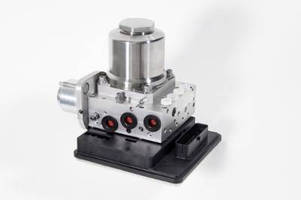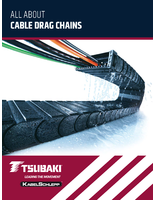ZF TRW's Innovative Integrated Brake Control System to Launch in High Volume in 2018

LIVONIA, Mich.
• The Integrated Brake Control system will be implemented in high volume by a major vehicle manufacturer
• Combines conventional braking components and functional control into a single unit offering enhanced performance across a full range of light duty vehicles
• Will help meet increased requirements for fuel efficiency/CO(2), advanced safety systems such as Automatic Emergency Braking as well as automated driving functions and is powertrain independent
ZF TRW, the Active and Passive Safety Technology Division of ZF AG, has received its first production contract for the Integrated Brake Control (IBC) system - a vacuum independent technology which simplifies the brake system architecture while offering enhanced performance.
The IBC replaces - in a single integrated unit - the electronic stability control system along with the vacuum booster and the associated cables, sensors, switches, electronic controllers and vacuum pumps where they are required for low or no vacuum configurations. It is a highly scalable solution that can support the brake system requirements from A segment cars through to large Sport Utility Vehicles.
Manfred Meyer, vice president, ZF TRW braking systems, commented: "The Integrated Brake Control system represents the future of braking technology and helps to satisfy the global industry trends of CO(2 )efficiency, safety and automated driving. It supports all powertrain configurations and can integrate regenerative braking technology for hybrids and electric vehicles; helps deliver advanced safety in the form of rapid building of brake pressure for high dynamic demands such as automatic emergency braking; and will support the gamut of brake vehicle control and stopping requirements for partially to fully automated driving functions."
At the heart of the system is an actuator that is driven by a fast acting motor capable of brake pressure builds that translate into up to one g vehicle deceleration in less than 150 milliseconds for significantly reduced stopping distances. This is particularly important when seeking to comply with the stringent new test protocols for EuroNCAP that simulate pedestrian and crossing bicyclists in urban environments.
In addition IBC offers packaging and weight advantages, typically weighing about 25-30% lighter than a comparable traditional brake system configuration. This can add additional fuel savings and space savings for vehicle manufacturers.
ZF TRW has deep experience in the design, development and supply of high complexity, powertrain independent electro-mechanical brake control technologies and has been in series production since 2007.
The IBC system will launch in high volume in 2018 for a major vehicle manufacturer and supports both traditional braking safety functions as well as partially automated functions.
SOURCE ZF TRW
CONTACT: Press contact: Louise Colledge, Communications Manager, Europe and Asia Pacific, ZF TRW, phone: +44 121 506 5317, email: louise.colledge@trw.com, John Wilkerson, Senior Communications Manager, ZF TRW, phone: +734 855 3864, email: john.wilkerson@trw.com, Thomas Wenzel, Head of Technology and Product Communications; ZF Group, phone: +49 7541 77-2543, email: thomas.wenzel@zf.com Â




